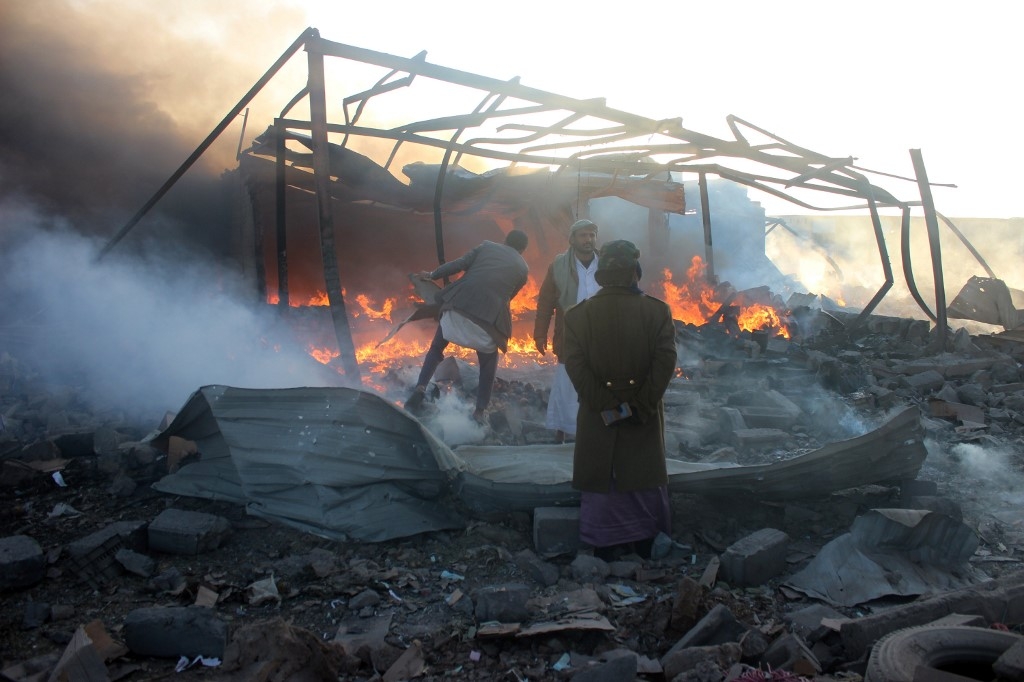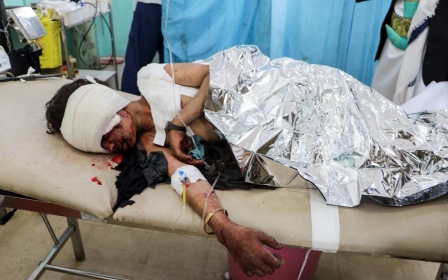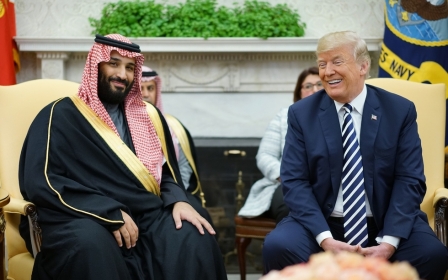Saudi arms sales: UK government stopped recording Yemen war violations

The British government decided to start ignoring Saudi Arabia's violations of international humanitarian law in Yemen in order to continue supplying it with arms, the UK's Court of Appeal has said.
According to evidence heard in secret at the court, the decision, which involved amending a spreadsheet of air strikes to remove a column in which potential violations were recorded, was taken by the Department of International Trade early in 2016.
This would have been shortly after a hospital was destroyed by aerial bombardment in Saada province, and a mobile clinic run by the charity Medecins Sans Frontieres was hit in an air strike, amid growing concern about civilian casualties caused by the coalition bombing campaign.
Although the evidence was heard in secret, it was referred to in an open judgment by the Court of Appeal in which the UK government was ordered to suspend any new arms sales to Saudi Arabia.
It said: "A close reading of the closed evidence would suggest that in the early months of 2016 there was either a decision, or a change of position, so that there would be no assessment of past violations of international humanitarian law."
Shortly after this, the judgment added, the database on which the department kept track of air strikes was amended, "to remove the relevant column or box" in which any suspected violation would be recorded.
"Hence there is no document or documents ... setting out the rationale by which it was thought right that no assessment of past violations should be made or even attempted."
It was this failure to assess past actions by the coalition that led the court to rule that the process by which the British government assessed its own legal responsibilities was itself unlawful.
"The question of whether there was an historic pattern of breaches of international humanitarian law on the part of the coalition, and Saudi Arabia in particular, was a question which required to be faced.
"Even if it could not be answered with reasonable confidence in respect of every incident of concern ... at least the attempt had to be made."
While the court's decision was hailed as a victory by Campaign Against Arms Trade, the London-based NGO that brought the legal challenge, the British government stressed that it was only its decision-making process that had been ruled unlawful.
Liam Fox, the international trade secretary, told members of parliament that while the court ruled that the process needs to change in order to be lawful, "it also made the point that changing the process wouldn't necessarily have led to a different decision".
Government lawyers also intend to appeal to the country's Supreme Court.
Around 40 percent of the UK's arms exports are to Saudi Arabia. Although the UK government claims to have one of the most robust arms export regulatory regimes in the world, critics have long argued that the evidence from Yemen shows that British-built aircraft, bombs and missiles have been used to target civilians.
CAAT spokesman Andrew Smith welcomed the judgment, saying: "No matter what atrocities it has inflicted, the Saudi regime has been able to count on the uncritical political and military support of the UK.
"The bombing has created the worst humanitarian crisis in the world."
Middle East Eye delivers independent and unrivalled coverage and analysis of the Middle East, North Africa and beyond. To learn more about republishing this content and the associated fees, please fill out this form. More about MEE can be found here.





